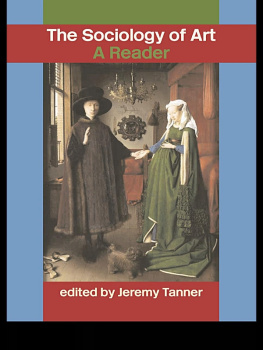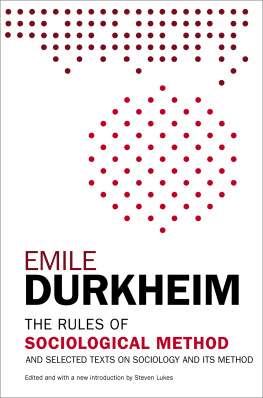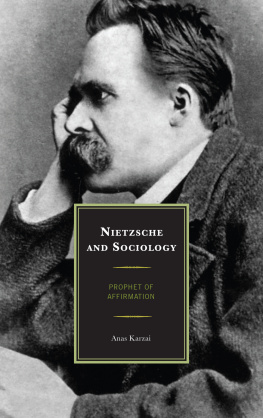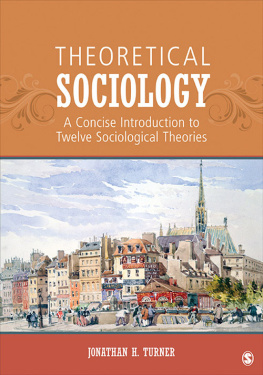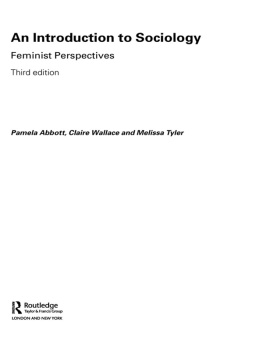First published 1998 by Pearson Education Limited
Published 2013 by Routledge
2 Park Square, Milton Park, Abingdon, Oxon 0X14 4RN
711 Third Avenue, New York, NY 10017, USA
Routledge is an imprint of the Taylor & Francis Group, an informa business
Copyright 1998, Taylor & Francis.
The rights of Ian Marsh, Rosie Campbell and Mike Keating to be identified as editors of this work have been asserted by them in accordance with the Copyright, Designs and Patents Act 1988.
All rights reserved. No part of this book may be reprinted or reproduced or utilised in any form or by any electronic, mechanical, or other means, now known or hereafter invented, including photocopying and recording, or in any information storage or retrieval system, without permission in writing from the publishers.
Notices
Knowledge and best practice in this field are constantly changing. As new research and experience broaden our understanding, changes in research methods, professional practices, or medical treatment may become necessary.
Practitioners and researchers must always rely on their own experience and knowledge in evaluating and using any information, methods, compounds, or experiments described herein. In using such information or methods they should be mindful of their own safety and the safety of others, including parties for whom they have a professional responsibility.
To the fullest extent of the law, neither the Publisher nor the authors, contributors, or editors, assume any liability for any injury and/or damage to persons or property as a matter of products liability, negligence or otherwise, or from any use or operation of any methods, products, instructions, or ideas contained in the material herein.
ISBN 13: 978-0-582-32023-9 (pbk)
British Library Cataloguing-in-Publication Data
A catalogue record for this book is available from the British Library
Library of Congress Cataloging-in-Publication Data
Marsh, Ian, 1952
Classic and contemporary readings in sociology / Ian Marsh, Rosemary Campbell, and Mike Keating.
p. cm.
Includes bibliographical references and index.
ISBN 0582320232 (alk. paper)
1. Sociology. 2. SociologyResearch. I. Campbell, Rosemary, 1967 . II. Keating, Mike, 1950 . III. Title.
HM15.M344 1998
Aims
The intention behind this book is to provide students with the opportunity to examine sociological theories, ideas and arguments in more depth than is possible through the summaries provided in introductory textbooks. It will enable students to read more substantial extracts from first hand sources both classic sociological theorising and more recent sociological work.
The editors of any compilation of readings are faced by the dilemma of what to include and, more awkwardly, what to omit. And there is a particular danger that an introductory reader in sociology might try to cover too much, be too eclectic and not work. In attempting to avoid this, we have aimed for a coherent thread to run through the reader a clear focus on sociological theory and research, both classic and contemporary. The book is divided into four main sections. Part One, Origins and Concepts, looks at the history of the discipline of sociology and at some of the key themes that have influenced sociological theorising and investigation: in particular, social control, culture and socialisation. Parts Two and Four, Sociological Theories and Sociological Research, include a number of readings from founding theorists and investigators, including Auguste Comte, Emile Durkheim, Karl Marx, Max Weber and Charles Booth, and readings that illustrate more recent theoretical writing and research approaches. The focus on theory and research is extended by a selection of readings centred around the theme of Differences and Inequalities (Part Three); these readings provide students with substantive examples of work from an area where sociological theorising and research has been widely and fruitfully applied.
Sociological theory and research is a major part of all undergraduate sociology courses; as well as being the basis of the core/compulsory courses that feature on many Sociology degree programmes. However, it is often difficult to get students to read from original sources in this area and we feel that this collection illustrates the clarity and accessibility of some of the best examples of past and present sociological work and will help to overcome any such reluctance. While the majority of sources from which the readings have been taken are well-known sociological sources, we have included a number that would perhaps not be thought of as obviously sociological. We make no apologies for this: we feel it is important for students to be aware that valuable sociological insights can be gained from a range of sources. Indeed, it is often the more unusual, non-mainstream sources that particularly grab our attention; and, of course, many classic theorists and writers who are now seen as key figures in Sociology did not necessarily see themselves as sociologists, or at least as solely sociologists. There are also a number of readings from feminist writers who may not see themselves as sociologists. Again, we see this as a strength of this collection, given the extensive critique of conventional sociological theory provided by feminist writers and the importance of feminist explanations for the divisions between men and women in society. As well as a balance between classic sociological work and contemporary pieces, the selection has an international flavour with readings from British, American and European sources.
The basic aim, then, is to encourage students in a deeper reading and understanding of original sociological work and it is hoped that these extracts will encourage students to locate and delve into the books from which they are taken.
Readership
The reader can be used as a text for a variety of courses on sociological theory, research methods and inequality. It is especially suited for courses on sociological theory and research provided for second- and third-year undergraduates core and/or compulsory courses on sociological analysis, for instance. Equally, it could be used in conjunction with a more general introductory textbook by students following first-year undergraduate courses in Sociology.
Features
We have tried to provide some consistency of structure across the four parts with certain features included in each.
Each part starts with an introduction providing an overview of the area being looked at and setting the context for each of the individual readings including how it relates to the other extracts and to the development of sociology in that particular area. These introductions explore the general areas being examined, explain why particular readings have been chosen and set those readings in context.
Each of the readings is preceded by a short summary highlighting some of the points and issues that students might consider when reading it. These summaries also remind readers of why the sources have been used and why the particular extracts have been chosen from them.


